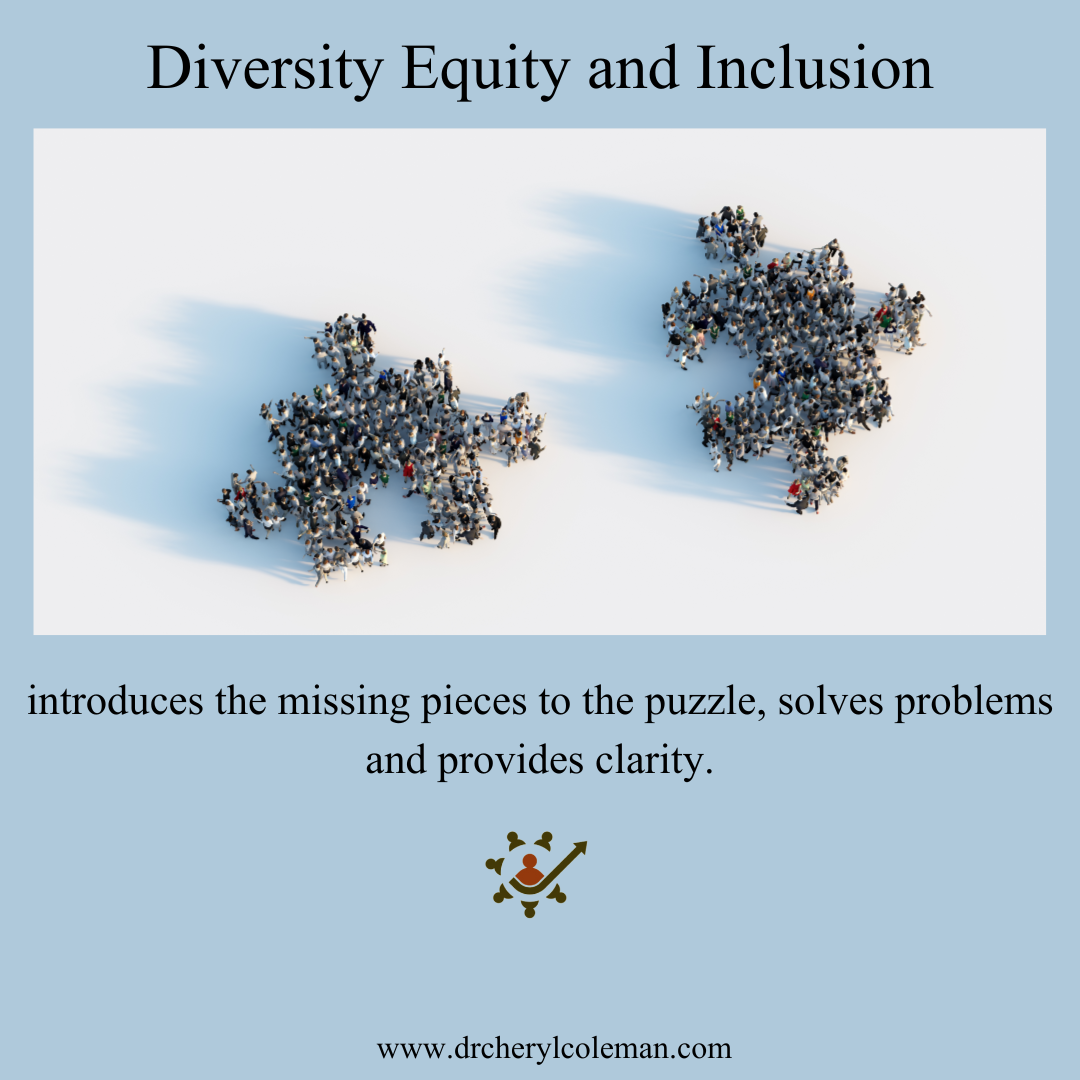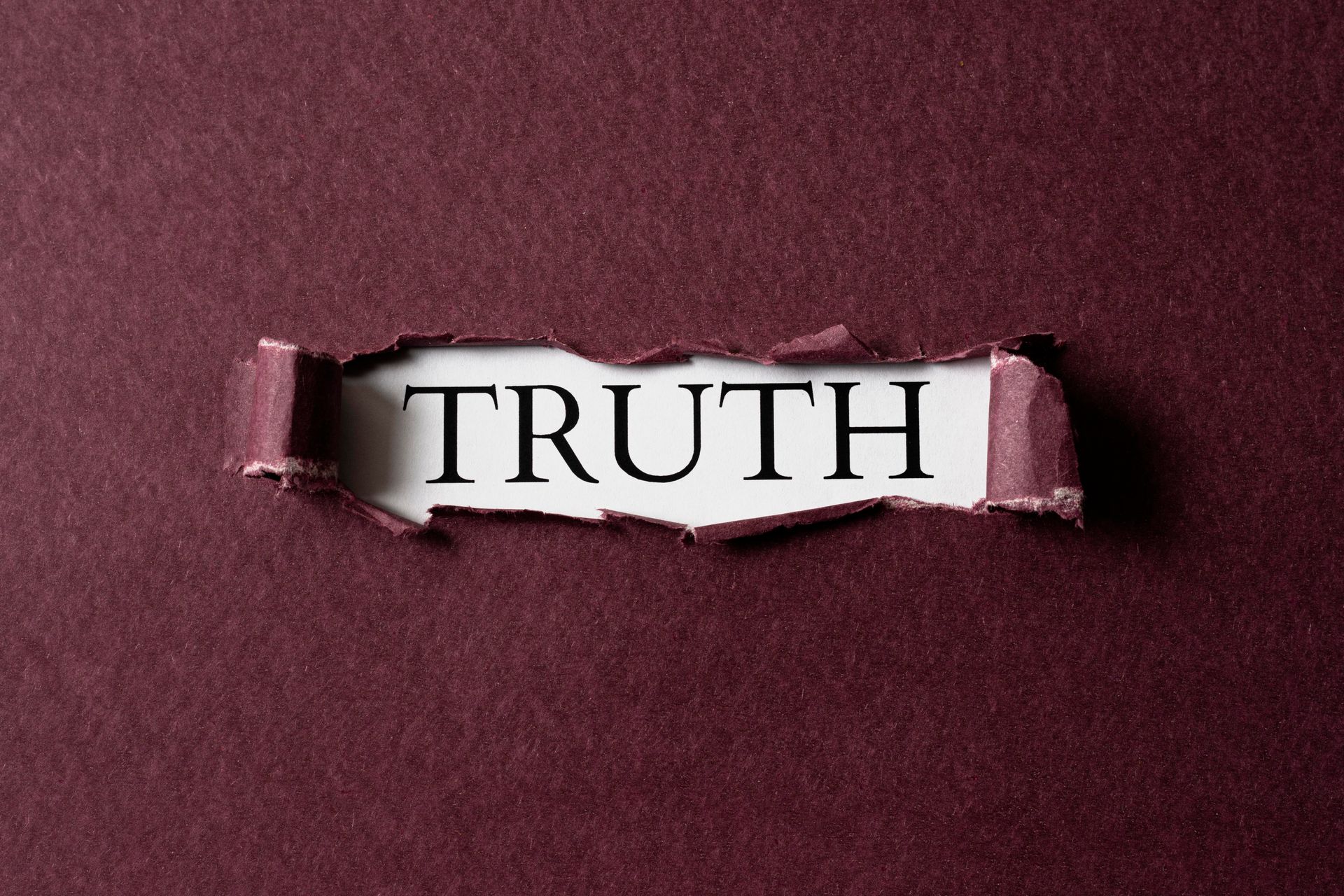Didn't Earn It?
Diversity, Equity and Inclusion

Didn’t Earn It? (DEI)
In my first Blog entitled, “Jesus Christ is Still Building His Church, Are You a part of the Church?” I discussed that it was the tagline for a non-profit I started to help bring people of The Faith in North America across racial lines, to transcend previous racial divisions in Western Culture due to racism. I discussed how racial cohesion is a mechanism that was built into our existence long before North America (and its social construct of race) was established; and how homogenous entities of any sort contrast our Maker’s design for our individual, as well as collective well-being and purposes in the earth where racial diversity is present. To illustrate this, I referenced the eleventh chapter of Genesis in the Old Testament of the Bible (Genesis Eleven was also the name of my organization) relative to the Tower of Babel and I declared that homogenous entities of a sort, that are built with the goal of making a name for themselves toward individualism, gain, power, control and greatness; can be likened to “towers,” that are destined to be broken down and disabled, ultimately, losing their power, control, gain and influence.
Diversity, Equity and Inclusion, (DEI) also known as Multiculturalism, also known as Cultural Competency, (and other names over time) is the most recent term used to generally represent the notion of deliberately, and purposefully being interconnected with others beyond commonalities of race, valuing others and treating them with dignity and respect; recognizing that no two people are alike and that we each embody relevant gifts, talents and abilities that contribute to the whole, especially where relevant decisions (including policy decisions) are made, as opposed to alienating others toward group think - gain, power, influence and control; honoring each individual and making fair, unbiased and honest judgments and assessments beyond stereotypes and unreliable and skewed statistics. However, some in our culture, including in some Faith-Based Organizations have placed a mockery on the term, renaming it as “Didn’t Earn It,” using their power and influence to a reinforce and advance the notion of the “tower,” and the strong delusion of White Supremacy.
In this article, I will delve into the topic of race and the homogenous church that was established in North America, and I posit that many of these are social constructs that contrast one’s Identify in Christ, cause many to err in their perceptions, practices, and modeling of their faith(s), to replicate models of mere towers, turning people away from their Maker to error, delusion, and chaos; misguiding and impeding the well-being of those they love and care for: entire families, their children included. They are towers, modeled after social constructs of race, to acquire and maintain unmerited power, control, gain and influence through exploitation, violence, and anti-Christian philosophies of division.
This grieves me deeply and has for more than three decades. I grieve at the notion of many being led astray who promote racial division in the name of God, perceiving they are hearing from and worshipping God. They have caused scores to turn from God to a “different gospel,” so to speak. Some advance ungodly and anti-Christian views and philosophies, which align more with the culture they live in, than the Maker of the universe who is good. I grieve through the heart of God, that scores have, and will continue to be disappointed, when they realize before their Maker that they were deceived into, or deliberately chose to participate in egregious acts of racial violence and the promotion of racial division in His name, toward their own, personal gain.
I urge you to explore my declarations further on your, own for your benefit and for greater clarity. I believe that many of us make ill-informed decisions with the greatest of intentions because we lack knowledge and as a result, we are playing for the wrong team. As they say, knowledge is power, and many have taken positions on the wrong sides of history because they lack knowledge relative to race. Much of what we believe in America omits many fundamental truths to our existence. In the current day, we are witnessing government entities and other actors who resent knowledge and have resorted to the banning of books that reveal our true history. Don’t take my word for what I declare alone, I urge you to do the research yourself and be weary of those who seek to misguide you for their own, unmerited, and unwarranted personal gain, power, and control. Our eternal standing, and that of our families and children before our Maker depends on it.
Coleman (2017):
Around the time period of 1840, the belief in the United States was that anyone who was not a White Anglo-Saxon Protestant, was permanently and innately inferior culturally, physically, economically, politically, and intellectually (Hine, Hine, & Harrold, 2006). To be inferior was to be anyone who was not a native-born Protestant. The Europeans’ initial encounter with non-whites was through conquering and seizing their land, and then subjecting the inhabitants of the land to enslavement or colonial repression. This was not only justified because to the color of their skin however, but specifically because others held non-Christian beliefs and practices (Benedict, 1959; Fredrickson, 2002). As racial tensions heightened, pseudo-scientific beliefs of race began to arise through the field of academia and in particular, from the concept of the origin of the human species, which rendered the social meaning of non-whites as being inferior to Whites. This concept was derived exclusively from studies of animals reported on by Charles Darwin in his 1859 publication, The Origin of the Species (Marger, 2006).
In the Christian church, Blacks were still only recognized as slaves. As noted by Carter (1926, p.1), “in order to keep the slaves ignorant and therefore contented with slavery, the slaveholders would allow among the slaves, no teachings, religious or otherwise, which would make them dissatisfied with their [slave] status.” During the late eighteenth, and early nineteenth centuries, however, Blacks began being exposed to the Christian religion, but only within the role of a second - class citizens. Within biracial congregations, Black Christians would be subjected to separate congregations that were characterized by separate seating and communion services, separate Sunday schools and separate cemeteries from Whites. When a Black parishioner attempted to pray in the White section of the church, attempts to prevent him were made by White trustees (Hine et al., 2006). This action led to the official disunion of the church in America that was negatively driven by race, and the formation of the first Black independent church. (Hine et al., 2006). This also began the tradition of the homogenous church in the U.S.
American Christianity since 1800 would certainly also emphasize the patriotic theme, demonstrating how Christianity has adapted itself to American nationalism. Politicians and religious leaders from the Revolutionary era onward have wrapped their policies in the cloak of divine purpose, to broad public approbation. While Dan Quayle of "potato" fame is the only national politician I have heard in recent years explicitly describe America as "God's chosen nation," the assumption remains implicit in much of our public rhetoric (Boyer, 2001, para. 10).
Nowhere in the narrative of Christianity is it more common to perceive the Christian church as being representative of nationalist patriotism, rather than religion, which is tied to first generation ideals of Christianity than in the Evangelical church movement, which also observes a general strict adherence to American conservative politics. For example, “the multicultural language of “gift” and “celebration of diversity” is common in mainline Protestant churches, but much less so in evangelical churches. In part, this is because evangelicals avoid multicultural discourse, which they associate with secular liberals” (Garces-Foley, 2007. p. 216).
The term White Privilege denotes that White people in Western Culture enjoy “invisible packages of unearned assets” (McIntosh,1989). The term unearned (unwarranted, unfair, unjustifiable, unmerited, inappropriate, unjust) appears too often to be overshadowed by the term privilege, (pleasure, joy, opportunity, advantage) and perceived as a positive attribute above anything else. I take issue with that notion. In my view, White Privilege is nothing to be celebrated, rather, it is to be named within a system that is woefully unearned and unjustifiable, and benefits solely from collective mistreatment and deliberate misfortune perpetrated onto others. It gains, solely at the loss of others. It is a fantasy and delusion of competence and authority and implicates those who are named in it, being the basis for many of the greatest past and present atrocities and injustices the world has come to know.
White Privilege isn’t a blessing in my view, rather, it appears to be a personal dilemma, established by violence, exploitation, lies, deceptions, pseudoscience, and propaganda since the inception of notably, mainstream American churches. It is built and it persists on tower mentality, which, relies on division and the destruction and exploitation of non-White individuals. In the United States, White Privilege was built and persists to the current day on Indigenous and Black people, thriving on their land and the gain and inheritances derived from slave labor that were never passed onto the descendants of those who earned, were abused, and died for, respectively. White Privilege is taking credit where it isn’t due in all aspects of our lives and culture; it revises and rewrites history as if it envies the contributions of others, lacks ambition, competence, or originality. No, America wasn’t built on merited gain and earned benefits of a homogenous nature, it is built through the distribution of the wealth and property of others and their descendants, and passed onto to others toward building a tower, to the current day. In other words, if anything didn’t earn it, White Privilege didn’t earn it.
No ethnic group has lifted itself by its own bootstraps. The Negro was freed from the bondage of physical slavery through the Emancipation Proclamation in 1863, but he wasn't given any land to make that freedom meaningful. It was something like keeping a man in jail for many, many years, and then suddenly discovering that he is not guilty of the crime for which he was convicted. Then you go to the man and say, "Now you're free," but you don't give him any bus fare to get to town. You don't give him any money to get clothes to put on his back or to get on his feet in life again. Every system of justice or code of jurisprudence would rise up against this, and yet this is exactly what America did to the black man. It freed him from slavery and then left him there penniless, illiterate. He didn't have a thing, and there was no land provided.
The important thing that America must realize is this: That at the same time that she refused to give the black man anything, she was giving away millions of acres of land in the West and the Midwest through an act of Congress. Not only did she give the land, she built land grant colleges to teach them to farm. She provided county agents to help them and to get them expert, to give them expertise in farming. But not only that, the nation provided low interest rates in later years so that they could mechanize their farms. Not only that, many of these persons are being paid today not to farm, and these are many of the persons who are telling the Negro that he should lift himself by his own bootstraps. A wonderful thing. (applause) I guess that it is all right to tell a man to lift himself by his own bootstraps, but it is a cruel jest to say to a bootless man that he ought to lift himself by his own bootstraps. Through centuries of denial, centuries of neglect, and centuries of injustice many, many Negroes have been left bootless. This does not mean that we do nothing for ourselves. It does not mean that we should not amass our economic and political resources to reach our legitimate goals. It simply means recognizing, the nation recognizing, that it owes a great debt on the basis of the injustices of the past. (“Transcript of Dr. King’s Speech,” 1968).
Additionally,
It is said on the Statue of Liberty that America is a home of exiles. It doesn't take us long to realize that America has been the home of its white exiles from Europe. But it has not evinced the same kind of maternal care and concern for its black exiles from Africa. It is no wonder that in one of his sorrow songs, the Negro could sing out, "Sometimes I feel like a motherless child." What great estrangement, what great sense of rejection caused a people to emerge with such a metaphor as they looked over their lives.
What I'm trying to get across is that our nation has constantly taken a positive step forward on the question of racial justice and racial equality. But over and over again at the same time, it made certain backward steps. And this has been the persistence of the so called white backlash.
In 1863 the Negro was freed from the bondage of physical slavery. But at the same time, the nation refused to give him land to make that freedom meaningful. And at that same period America was giving millions of acres of land in the West and the Midwest, which meant that America was willing to undergird its white peasants from Europe with an economic floor that would make it possible to grow and develop, and refused to give that economic floor to its black peasants, so to speak.
This is why Frederick Douglas could say that emancipation for the Negro was freedom to hunger, freedom to the winds and rains of heaven, freedom without roofs to cover their heads. He went on to say that it was freedom without bread to eat, freedom without land to cultivate. It was freedom and famine at the same time. But it does not stop there. (“The Other America,” 1967).
DEI is not a liberal, political ideology as some would attempt to have us believe. DEI is fundamentally based on the merit of the individual and their contribution to the whole, for the good of us all. That DEI is being made a mockery to suggest that non-White, and in particular, Black people in America didn’t earn the right to live free and prosper, including as people of The Faith, is a dark and supposition to make, whether deliberately, or through hearsay, or miseducation, in the presence of the Maker of the universe. The notion of Didn’t Earn It (White Privilege, White Supremacy, etc.) appears to be what I call a White Predicament, as it appears to be in direct contrast to what is good and right, denoting very evil motives and intentions among us. White Predicament, directly, as well as indirectly suggests psychological projection and an attempt to amass power, gain, influence, and control, which, is unmerited, unjustified, unearned, and undeserved; it is of forced overconfidence, harsh rules, actions, and attitudes; a mask, which covers one’s true self, accomplishments, and contributions to societies.
Diversity Equity and Inclusion promotes value. It is an ability to critically think matters through a diverse set of ideas, interactions, expanded facts and knowledge. Diversity, Equity, and Inclusion introduces the missing pieces to the puzzle, solves problems and provides clarity. It is of gain, power, and influence that one can be proud of. Diversity, Equity, and Inclusion is innovative, having its finger on the pulse of change and growth; it is a celebration of who we are as individuals in our Maker’s eyes, where no two of us are alike, and where each of us have a singular experience and have walked a singular path that is unique and insightful to the challenges (and victories) among us. It is to unapologetically be and express the best you that you can be, noting that we were not made to be or thrive as another. Diversity, Equity, and Inclusion is honorable, honest, meritorious; and unlocks doors to our greatest growth as people, and our influence on places and things; it is natural, unforced, and allows for the perfect fit and outcomes, (personal and organizational) that are beyond what we can imagine on our own. It is what we need, without us often realizing it. It is to be equipped for the times and days ahead, as opposed being ill-equipped due to riding the coattails of others and lacking the ability to compete on the merits due to minimal experience, knowledge, sacrifice, or ability. It is to transcend delusions and face the world as it is, not what we desire it to be.
Best,
Dr. Cheryl R. Coleman
Dr. Cheryl assists faith-based organizations with constructing and managing systems involving the workforce toward efficiency, effectiveness, and clarity, and her specialty is managing volunteers.
Faith-Based Organizations are positioned to model the good among us through our faith teachings, which, honor each of us as individuals, who are fearfully and wonderfully made by our Maker. Dr. Cheryl also analyzes current day news and activities, domestically, as well as internationally and their impacts on these critical, and related matters. At the base of her consulting, cultural analyses, organizational analysis, and coaching, is the major components of dignity and respect for others, cultural competency, and racial diversity management.
If you would like to learn more, contact her for a 30-minute consultation today to see how she can help you with overcoming organizational, as well as related personal challenges around these topics.
“You have to decide who you are and force the world to deal with you, not with its idea of you.”
― James Baldwin
MLK speech transcript. Ohio Northern University. (n.d.). https://www.onu.edu/mlk/mlk-speech-transcript
The other America - dr. Martin Luther King. (n.d.). https://blogs.baruch.cuny.edu/evolution/files/2020/06/MLK-The-Other-America.pdf
Volunteer Management in faith-based organizations - digital ... (n.d.-b). https://digitalscholarship.unlv.edu/cgi/viewcontent.cgi?article=3963&context=thesesdissertations
White privilege: Unpacking the invisible knapsack by Peggy McIntosh. HCCS Learning Web. (n.d.). https://learning.hccs.edu/faculty/ronique.hinchen/engl-3.1301/copy_of_assigned-readings/white-privilege-unpacking-the-invisible-knapsack-by-peggy-mcintosh
Get In Touch
Contact Us
We will get back to you as soon as possible
Please try again later



